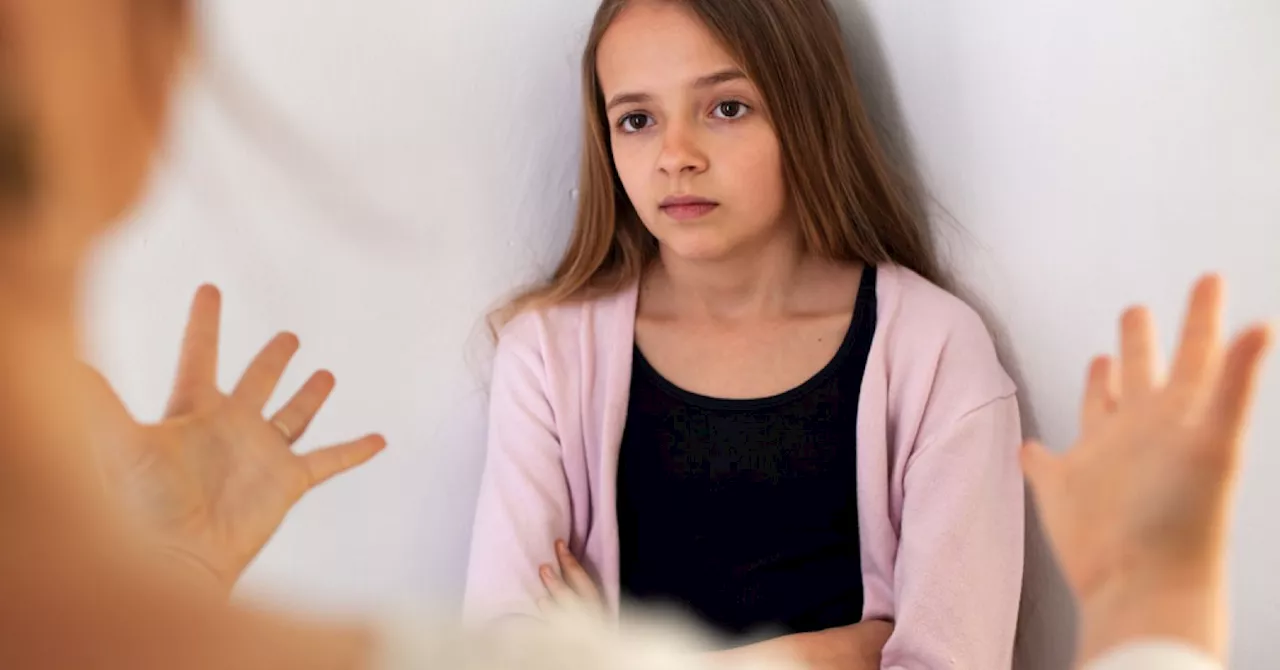This article explores the importance of validating a child's emotions, even when they seem out of proportion or illogical. It offers practical advice on how parents and educators can respond to children's emotional outbursts in a way that fosters understanding and connection, rather than defensiveness.
Validating your child's emotions is a powerful tool for keeping kids engaged rather than defensive. Jasmine, an 8th grader, sat in my chair, crying big heaving sobs while her mom and I sat on the couch, taken aback at how fast this emotional episode came on. I asked Jasmine who she sat with at lunch, and she instantaneously melted into an emotional puddle.
When I gently asked what was going on, she spilled out a detailed story about a close friendship that had gotten complicated (as they do in 8th grade). Now Jasmine was sure she wouldn’t be able to sit at her regular lunch table at school tomorrow, now that everyone hated her, and that she would never have any friends. Her mother, in the most thoughtful way possible, told Jasmine that the situation was not that bad and that Jasmine’s reaction was just making things worse. In classic 13-year-old fashion, there were stares, a dramatic eye roll, and stomping out to the waiting room, saying “You never believe me — you just don’t understand.” Mom sighed and shrugged her shoulders, understandably frustrated. She was trying to help her daughter, and she asked if there was anything else she could do differently. The answer was, paradoxically, that Mom had to let Jasmine feel bad first — then there would be time and space to help her feel better. I have been in that situation as a parent, and I have sat with so many families going through it. And while middle school notoriously pulls for these seemingly outrageous emotions, children of all ages can present us with puzzling, often seemingly nonsensical emotional responses that we simply don’t get. Our impulse is often to try to help them understand that they are overreacting — or mis-reacting with an that doesn’t make sense to us. A child who is reacting angrily to being reprimanded for something may lead us to ask why they are mad, when we expect them to show remorse and distress over their actions. Or a child may display giddiness and loud whoops of joy over a single text from someone, and we may tell them to take it easy — it’s just one text. While all children have emotional responses that confuse us, children with mental health needs present next-level emotions that seem impossible to understand. A child struggling with anxiety may exhibit terror over seemingly small things like not knowing where their parent is at all times, or asking a teacher for help. Children with phobias have numerous illogical fears, and they may need to ask parents to do or say certain things or to reassure them endlessly. Children with depressive symptoms can feel down and sad, or angry and irritable, or both, even when things seem to be going great. It turns out that a simple strategy can often help our kids stay in conversation with us, or at least stay in the room with us, rather than tune us out — even when it makes no sense to us — keeps them engaged and avoids a battle about how they are feeling, so we can find out what is going on with them. The simple step of communicating to the child or teen that you respect their emotional experience, that it is separate and different from yours, changes the conversation from the start. For Jasmine, I encouraged her mother to let it be for now, but we considered some adjustments to her responses the next time Jasmine had a reaction that seemed out of proportion to the situation. Rather than telling Jasmine that the emotions were unhelpful, I suggested that Mom start with something like, “I can see how much this is upsetting you.” Validating responses can range from general and broad, such as, “Wow, there's a lot going on for you,” to more specific such as “I see how sad this makes you, and that must be really hard.” Whatever language you use, any words that tell them that you aren’t debating their feelings — that you are starting from acceptance of the feelings — will work. Try to minimize bringing your own feelings and experiences into the conversation at this point. Saying that you know how your child or teen is feeling sounds empathetic, but teens and children can perceive it differently; they can't imagine that anyone knows exactly how they feel at this moment. And it’s not time for stories of your heartbreaks or frustrations — at least not yet. This is all about your child's emotional experience in this current moment. To be clear, you may not understand the feelings at all. And you don’t have to. You can validate and empathize, without understanding. You don’t have to lie and say you understand when you don’t. The goal is to acknowledge that your child or teen is experiencing an emotion that is causing them distress and that you believe the feelings are real. This strategy takes only a few extra moments — so it can also be useful in schools and classrooms. It’s a great way to re-engage a student whose emotions are making it harder for them to participate in learning. It’s also a fundamental tool in de-escalating a child whose emotions have hijacked them
EMOTIONAL REGULATION CHILD DEVELOPMENT PARENTING TIPS MENTAL HEALTH COMMUNICATION VALIDATION EMPATHY
United States Latest News, United States Headlines
Similar News:You can also read news stories similar to this one that we have collected from other news sources.
 Validating Children's Emotions: A More Effective Parenting ApproachThis article explores the importance of validating children's emotions rather than resorting to scolding when they exhibit challenging behaviors. It highlights the benefits of listening and affirming children's feelings, explaining how this approach fosters open communication and encourages positive behavioral change. The article draws on expert insights to illustrate the detrimental effects of shame and emphasizes the role of guilt in motivating problem-solving.
Validating Children's Emotions: A More Effective Parenting ApproachThis article explores the importance of validating children's emotions rather than resorting to scolding when they exhibit challenging behaviors. It highlights the benefits of listening and affirming children's feelings, explaining how this approach fosters open communication and encourages positive behavioral change. The article draws on expert insights to illustrate the detrimental effects of shame and emphasizes the role of guilt in motivating problem-solving.
Read more »
 Instead of Scolding, Try Validating Your Child's FeelingsParenting expert Adele Faber suggests that instead of scolding children when they misbehave, parents should try understanding and validating their feelings. This approach can be more effective in encouraging positive behavior changes.
Instead of Scolding, Try Validating Your Child's FeelingsParenting expert Adele Faber suggests that instead of scolding children when they misbehave, parents should try understanding and validating their feelings. This approach can be more effective in encouraging positive behavior changes.
Read more »
 Only Child Traits: How to Tell if Someone Grew Up an Only ChildThis article explores common traits and behaviors exhibited by people who grew up as only children. Based on anecdotes from individuals, it highlights differences in their approaches to conflict, personal space, sharing, and social interactions compared to those with siblings.
Only Child Traits: How to Tell if Someone Grew Up an Only ChildThis article explores common traits and behaviors exhibited by people who grew up as only children. Based on anecdotes from individuals, it highlights differences in their approaches to conflict, personal space, sharing, and social interactions compared to those with siblings.
Read more »
 Colorado Task Force Calls for Overhaul of Child Abuse Reporting System After Child's DeathFollowing the death of Olivia Gant, a statewide task force in Colorado has recommended significant reforms to the state's child abuse reporting system. The proposal comes after hospital caregivers suspected Olivia's mother of medical abuse but did not alert authorities until after Olivia's death. The task force aims to clarify reporting procedures and ensure timely intervention in cases of suspected abuse.
Colorado Task Force Calls for Overhaul of Child Abuse Reporting System After Child's DeathFollowing the death of Olivia Gant, a statewide task force in Colorado has recommended significant reforms to the state's child abuse reporting system. The proposal comes after hospital caregivers suspected Olivia's mother of medical abuse but did not alert authorities until after Olivia's death. The task force aims to clarify reporting procedures and ensure timely intervention in cases of suspected abuse.
Read more »
 Child Rape Survivor Demands National Inquiry into Child Grooming GANGS in BritainA victim of a Pakistani child rape grooming gang, Elizabeth Harper, joined Nigel Farage and Reform UK to demand a national public inquiry into the abuse of young girls in Britain. She accused authorities of ignoring the sexual exploitation committed against her and others by Pakistani-heritage men in Rotherham, details the abuse she endured, and criticizes the government's refusal to hold a focused inquiry into this issue.
Child Rape Survivor Demands National Inquiry into Child Grooming GANGS in BritainA victim of a Pakistani child rape grooming gang, Elizabeth Harper, joined Nigel Farage and Reform UK to demand a national public inquiry into the abuse of young girls in Britain. She accused authorities of ignoring the sexual exploitation committed against her and others by Pakistani-heritage men in Rotherham, details the abuse she endured, and criticizes the government's refusal to hold a focused inquiry into this issue.
Read more »
 Man Out on Bond for Child Sex Charges Faces New Rape and Child Abuse Material ChargesJalan Christopher Lewis, a 30-year-old man out on bond for previous child sex charges, has been arrested again on new charges including second-degree rape and production of child sexual abuse material. The West Alabama Human Trafficking Task Force made the arrest after discovering Lewis had solicited and met with a minor for sex multiple times while out on bond for previous charges.
Man Out on Bond for Child Sex Charges Faces New Rape and Child Abuse Material ChargesJalan Christopher Lewis, a 30-year-old man out on bond for previous child sex charges, has been arrested again on new charges including second-degree rape and production of child sexual abuse material. The West Alabama Human Trafficking Task Force made the arrest after discovering Lewis had solicited and met with a minor for sex multiple times while out on bond for previous charges.
Read more »
